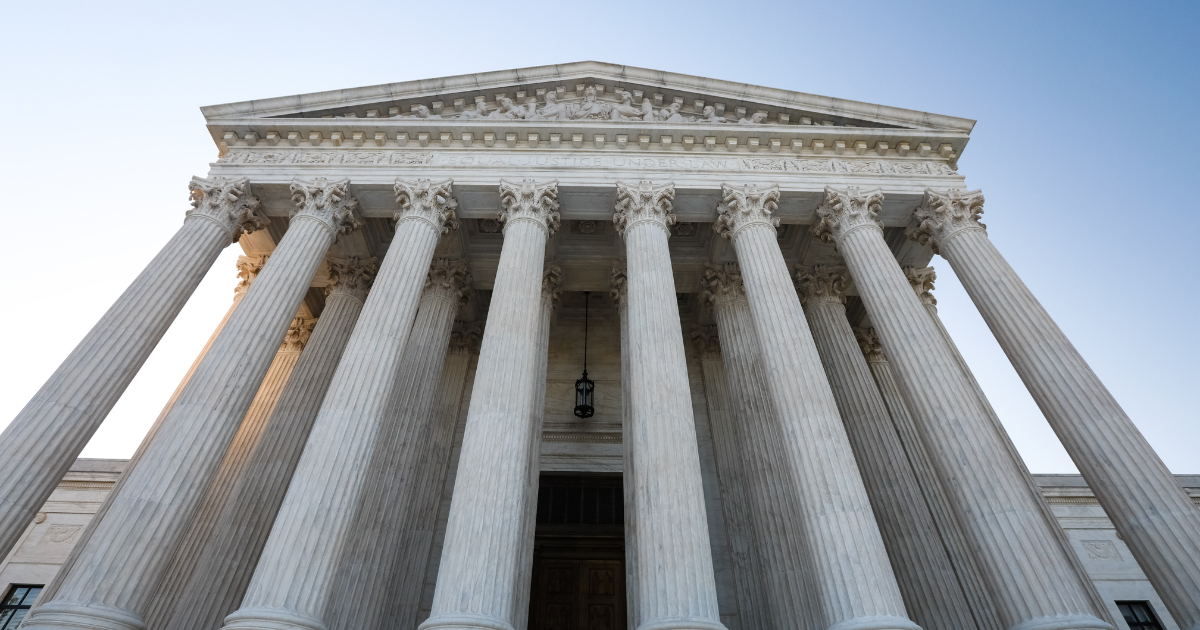Superior Court Clarifies How To Satisfy Judgment For Possession In Philadelphia
In Johnson v. Bullock-Freeman, the Superior Court of Pennsylvania recently delved into what constitutes the appropriate amount to “pay to stay,”...
5 min read
Alan Nochumson and Sofia Calabrese : Aug 12, 2025 9:00:00 AM

The Pennsylvania Commonwealth Court in Philadelphia Gas Works v. SBG Management Services, No. 380 C.D. 2024 (Pa. Commw. Ct. June 17, 2025), recently affirmed the special injunction entered by the Philadelphia County Common Pleas Court against Philadelphia Gas Works (PGW)—a city-owned utility regulated by the Public Utility Commission (PUC)—enjoining PGW from terminating gas service to the owners of five properties who had disputed gas bills charged by PGW, leading to ancillary litigation.
The Commonwealth Court determined that the dispute involved a commercial collection matter—rather than a regulatory one—permitting the Commonwealth Court to grant equitable relief in order to prevent irreparable harm while the parties’ separate litigation played out. Though PGW argued that the PUC had exclusive jurisdiction over service terminations, the Commonwealth Court found that the judiciary retains authority to issue injunctive relief in disputes that do not require PUC expertise.
This decision clarified the Commonwealth Court’s authority to permit equitable relief in order to maintain the status quo ante, even when an underlying dispute is pending before the PUC.
SBG Management Services and its affiliated entities, as landlords, own and operate five multi-unit residential properties in Philadelphia, the opinion said.
In fall 2023, PGW issued shut-off notices for all five buildings, citing nonpayment of gas bills during the period of time from April 2023 to August 2023, the opinion said.
According to PGW, the landlords owed over $50,000 in aggregate.
The landlords disputed the arrearages, alleging longstanding billing errors, including inaccurate meter readings and a practice by PGW of docketing unpaid charges as liens while continuing to apply interest at 18% annually.
The landlords claimed PGW’s collection practices resulted in effectively unpayable balances and that the utility had retaliated against them for past litigation and complaints and, in doing so, they alleged PGW owed them nearly $2 million in overcharges, the opinion said.
In November of 2023, the landlords filed a complaint in equity in the Philadelphia County Court of Common Pleas seeking a preliminary injunction.
The trial court granted a special injunction, requiring PGW to restore gas service and prohibiting service termination without court approval.
Though PGW initially agreed to continue service under a monthly payment arrangement, it later appealed the special injunction so granted, arguing that the trial court lacked jurisdiction and that the landlords failed to satisfy the legal standard for injunctive relief.
On appeal, PGW argued that, because it is regulated by the PUC, only the PUC—not the courts—has authority to adjudicate disputes over service terminations. PGW pointed to several statutory provisions, including Section 1406 of the Public Utility Code (66 Pa. C.S. Section 1406), which governs termination of residential gas service.
PGW claimed that the entire dispute, including the landlords’ allegations of discriminatory and retaliatory termination, fell within the exclusive jurisdiction of the PUC. It also argued that the landlords had an adequate remedy through the PUC’s complaint process and that courts should defer to the PUC’s administrative expertise.
The landlords, for their part, conceded that they had filed formal complaints with the PUC but argued that they were entitled to judicial relief to prevent irreparable harm—namely, tenants being left without heat or hot water during cold weather. The landlords emphasized that only the court could issue an injunction and that the PUC lacked both the authority and the speed necessary to prevent immediate harm.
The Commonwealth Court sided with the landlords, affirming the trial court’s authority to issue the injunction. Writing for the panel, Senior Judge Mary Hannah Leavitt explained that the core issue was not about PGW’s rates, service quality, or other regulatory matters that fall squarely within the PUC’s exclusive jurisdiction. Rather, the case involved a “contractual and collection dispute”—a type of dispute that courts routinely handle.
The Commonwealth Court drew heavily on Drafto v. National Fuel Gas Distribution, 806 A.2d 9 (Pa. Super. Ct. 2002), wherein the Pennsylvania Superior Court held that courts retain jurisdiction to issue injunctive relief in utility shut-off cases that do not raise complex regulatory issues. The Commonwealth Court distinguished other cases where the dispute centered on service quality or system-wide issues, finding that the dispute between PGW and the landlords was “in essence, a collection matter.”
The Commonwealth Court also emphasized that Section 1406 of the Public Utility Code prohibits a utility from terminating service over a “disputed delinquent account.” Because the landlords disputed the charges, the Commonwealth Court found that shut-off notices raised legal questions well suited to judicial review. The Commonwealth Court noted that the landlords were not seeking adjudication on the merits of their billing dispute, but rather to preserve the status quo ante pending resolution of those claims pending before the PUC.
Importantly, the Commonwealth Court clarified that the PUC cannot award damages or issue injunctions—remedies that only a court can provide. As such, according to the Commonwealth Court, the judiciary retains a critical role in ensuring that public utilities do not take actions that irreparably harm customers while administrative proceedings are ongoing.
In addition to their jurisdictional argument, PGW also argued that the landlords failed to meet the legal standard for injunctive relief, which requires proof of: immediate and irreparable harm that cannot be compensated by money damages; greater harm from denying the injunction than granting it; likelihood of success on the merits; suitability of the injunction to abate the harm; preservation of the status quo; and no adverse impact on the public interest.
The Commonwealth Court rejected PGW’s argument, emphasizing the deferential standard of review and noting that PGW had initially consented to the injunction.
As to irreparable harm, the Commonwealth Court found that terminating gas service during winter months would render residential units uninhabitable, especially for low-income tenants and that money damages could not compensate tenants for being unable to heat their homes or use hot water.
The Commonwealth Court also found that PGW’s conduct—terminating service despite knowing the charges were disputed—violated former Section 1406(a)(1), constituting irreparable harm per se.
Regarding likelihood of success, the Commonwealth Court noted that PGW’s actions appeared retaliatory given the landlords’ ongoing litigation and $2 million damages claim. The Commonwealth Court noted that, at minimum, the landlords raised substantial legal questions worthy of judicial intervention.
Finally, the Commonwealth Court emphasized that the injunction preserved the pre-dispute status quo, as the landlords were continuing to make $15,000 monthly payments and PGW retained the right to seek leave of court to terminate service. That arrangement, the Commonwealth Court found, was both fair and lawful.
Legal Implications for Property Owners and Practitioners
This Commonwealth Court’s ruling underscores that, while utilities like PGW are regulated by the PUC, they are not immune from judicial oversight—especially when their actions threaten immediate harm or implicate constitutional concerns.
For real estate attorneys representing landlords, this ruling clarifies that courts can step in to prevent utility shut-offs when the charges are disputed and the administrative remedy is insufficient or incomplete. In order to seek judicial intervention the matter must be framed as a contractual or collection dispute—not a challenge to utility service or rate-setting authority.
The case is also a reminder that Pennsylvania courts distinguish between “exclusive jurisdiction” and “primary jurisdiction.” While the PUC may have the first say on regulatory matters, courts retain the final word on contract enforcement, injunctions, and damage awards.
And for landlords managing residential properties—particularly multi-unit buildings—this ruling offers a roadmap for challenging unjust utility practices. By documenting disputes, filing timely complaints with the PUC, and seeking equitable relief in court when appropriate, landlords can shield themselves and their tenants from harm while still working within the broader regulatory framework.
—Michael Lipson, a rising second-year student at the Temple University Beasley School of Law and summer associate at the firm, contributed to this article.
Reprinted with permission from The Legal Intelligencer © 2025 ALM Media Properties, LLC. All rights reserved. Further duplication without permission is prohibited. For information, contact 877-257-3382, reprints@alm.com or visit www.almreprints.com.

In Johnson v. Bullock-Freeman, the Superior Court of Pennsylvania recently delved into what constitutes the appropriate amount to “pay to stay,”...

In Flannery v. Mid Penn Bank, the U.S. District Court for the Middle District of Pennsylvania recently rejected a judgment debtor’s attempt to...

In a recent opinion handed down by the Pennsylvania Superior Court inCooper v. SGYS St. Ives,2025 Pa Super. LEXIS 126 (Pa. Super. Ct. March 19,...